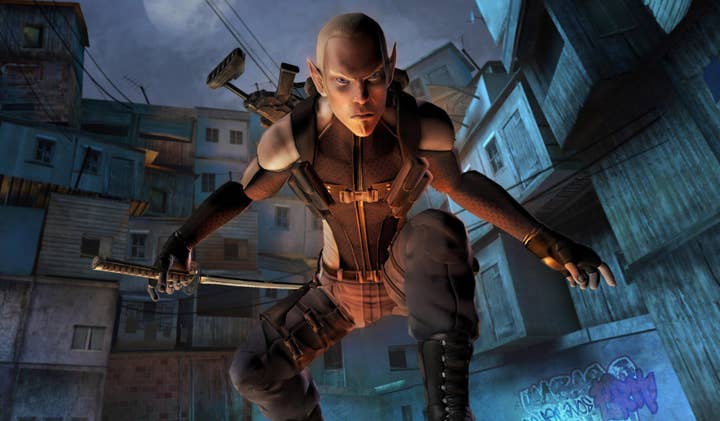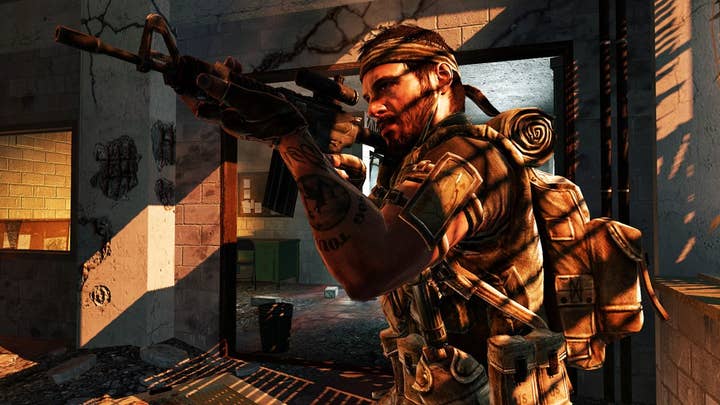Xbox' back catalogue isn't just a stopgap – it's a competitive advantage | Opinion
Maintaining great backwards compatibility shouldn't be seen just as a way to cover for a lack of exclusives; we're in an era where back catalogues are more valuable than ever before
One peculiar aspect of Microsoft's battle to stave off regulatory intervention in its proposed acquisition of Activision Blizzard – now seemingly in its final stretch, following the slapping down of the FTC's frankly ill-conceived case for blocking the deal – is that it has required the second largest company ever to exist, a $2.7 trillion dollar behemoth that rakes in profits of over $80 billion every year, to convincingly play an underdog role.
To that end, Microsoft has done something platform holders almost never do, effectively talking down its competitive position versus rivals like Sony, and highlighting the ongoing gulf in the performance of the Xbox compared to the PlayStation.
It's not that this is anything we didn't really know before – although it's generally been de rigueur to at least pay lip-service to the notion that these platforms are equal competitors, however unrealistic that may have been at any point other than the Xbox' golden few years at the outset of the PS3/360 generation – it's just been an odd reversal to see it come directly from Microsoft itself.
While it is obviously a strategic move for Microsoft to make these claims – it wants to pay a nosebleed-inducing amount of money for Activision Blizzard, and needs to convince regulators that it won't massively distort the competitive landscape by doing so – it's also the case that the claims themselves are accurate.
Xbox is very much an underdog in the console landscape right now (the game subscription service landscape is a different story, as the UK's CMA noticed, but that won't be enough of a sticking point to prevent the deal from going through in the end), not only in terms of hardware sales but also in terms of its catalogue of IPs and software pipeline.
Microsoft knew this would be the case from the outset of this generation; it knew its studio system was anaemic compared to Sony or Nintendo, that its IP library was weak and poorly maintained, and that effectively ceding the previous generation to PS4 and (to a lesser extent) Switch ensured that consumers had started building significant libraries of digital content on rival platforms.
Microsoft presents a bleak picture of that situation in its various filings and statements regarding the ABK acquisition, effectively suggesting that people building up digital libraries on PS4 and Switch was creating a lock-out that would prevent Xbox gaining a foothold.
The company's strategic response to that challenge, however, was arguably one of the best things it did with the Xbox platform in this generation – it knuckled down on backwards compatibility, taking advantage of the clear throughline in the architecture of all the Xbox platforms right back to the original console in order to offer an unrivalled degree of compatibility with an enormous back catalogue of software.
Much of that software is available either via the Game Pass subscription, or to purchase cheaply through the Xbox store, giving the console an enormous library of older software that remains head and shoulders above rival offerings on PlayStation and Switch.
These efforts didn't stop with the launch of the new Xbox consoles – and while it has fallen out of focus somewhat as more and more software for current-gen systems has appeared, backwards compatibility can still serve up occasional wins for the Xbox platform.
A few days ago, Microsoft restored matchmaking functionality to a swathe of Xbox 360 era Call of Duty titles. As Tom Warren subsequently reported for The Verge, several of those titles then jumped up to the top of the Xbox store charts, and around 100,000 people were online playing them. That's pretty extraordinary for games from two generations ago – a temporary spike, of course, but still a pretty impressive flick of the series' long tail, a nice little win for the Xbox platform, and an interesting point of differentiation from rival console platforms.
This isn't entirely an isolated incident either. Microsoft's backwards compatibility team also recently fixed up the matchmaking system for the company's own 2007 Shadowrun title, for example, restoring functions broken by previous service updates and also improving systems many years old. It's a bit of a stretch to call this a trend, but there does seem to be a willingness on Microsoft's part to start thinking of backwards compatibility in broader terms than before – recognising that for many games, a huge part of the experience is tied up with servers and matchmaking systems that may have been shut down or disabled years ago.

Without fixing those aspects or providing some kind of workaround, large swathes of the back catalogue on a service like Game Pass will be incomplete, and some games will lose their purpose entirely. If backwards compatibility is going to be a core differentiation of the Xbox offering, online services are an area where that difference can be made very clear.
Microsoft won't be able to fix every problem for every game with an online component – not least because it will require the cooperation of third parties to do so in most cases, and many publishers are profoundly disinterested in doing any actual work to sustain their back catalogues. However, the company is in a rather unique position to work on this aspect of backwards compatibility where possible.
In the Xbox 360 era, keeping servers and matchmaking systems online for a game was potentially resource-intensive and expensive; this is why so many games' online components were shut down within a matter of a couple of years, even when the game had been pretty successful.
Nowadays, however, Microsoft operates one of the world's largest cloud computing platforms, probably second only to Amazon's AWS platform. With a relatively small (albeit very highly skilled) input of engineering time, it's possible to move services that formerly required expensive dedicated servers over to being cloud services that can remain available at almost zero cost in perpetuity. That isn't quite what has happened in the cases of Call of Duty or Shadowrun, but for Microsoft, more than any of its competitors, it is an option that remains tantalisingly open.
Call of Duty's world-beating Xbox 360 era games are an exceptional case, of course. Most back catalogue games won't manage to scrape up more than a few hundred players for their online services at best. That doesn't detract from the value of preserving that functionality as part of the broader backwards compatibility effort, though, especially given how central to the identity of the Xbox platform that has become.
There does seem to be a willingness on Microsoft's part to start thinking of backwards compatibility in broader terms than before
A canny strategist would also note that while the potential appeal of online services for older games may seem very limited on paper, in practice we live in an era where older content – books, podcasts, TV shows, etc. – routinely goes viral and sees sudden massive boosts in attention.
These events are impossible to predict, but the benefit of being the default platform where such experiences are available seems clear. All it takes is a couple of popular streamers deciding to play something like Shadowrun on stream just as the planets align correctly to create an incredible boost in attention for an older game, with a halo effect for the Xbox platform if that's the only place to play it seamlessly.
Backwards compatibility is sometimes treated a little dismissively in commentaries about Xbox, since it's fairly clear that Microsoft initially doubled down on this area to try to cover over the gaps in its current release schedule – yet regardless of the truth of the assertion, it remains the fact that the company's commitment to backwards compatibility is real and has been executed upon extremely well.
You could argue that this is the perfect generation in which to focus on that aspect, too. Despite the technical leaps of the past two generations, there's never been a point in the industry where a longer tail of games remained playable and enjoyable by modern standards, even to the extent that a lot of players might struggle to pinpoint differences between the later games of one generation and the early games of the next.
That creates a depth in the industry's catalogue which, with the best will in the world, has never truly existed before; only a very small handful of the games of generations prior to the PS3/Xbox 360 era remain appealing to players today without significant remastering work. This is exactly the reason why the digital libraries players built up on PS4 are a competitive challenge to Microsoft, but it can also be the reason why great management of the Xbox back catalogue is a competitive advantage.
If Microsoft maintains this focus on managing its back catalogue, it has the potential to be a very smart long-term play.
Keeping an eye on backwards compatibility today also means ensuring that today's titles are built in such a way as to ensure that they remain playable and functional – online components included – into the far future. Microsoft has an opportunity to enforce rules on its platform that ensure the stability and quality of its back catalogue for decades to come.
We should hope that that's not an opportunity that slips out of focus as its expensively acquired first-party software pipeline comes online and the immediate commercial impetus for hyping up its back catalogue fades away.
Diminishing returns from graphical advances and near-zero distribution costs mean that games are following other media into an era when a well-managed and accessible back catalogue is a powerful asset – and Microsoft is in a great position to make this into a major competitive advantage for Xbox for many years to come.
Sign up for the GI Daily here to get the biggest news straight to your inbox









